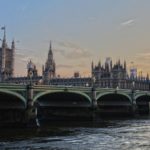
The UK has a big problem, and for once, it’s one everyone can agree on: for too long, regional disparities have suppressed the potential of some areas of our country, leaving communities behind, as growth and opportunity amass in others.
But things could be different. For at least 20 years there has been recognition that decentralisation is the key to a more even spread of prosperity across the UK. From New Labour’s devolution of the Scottish, Welsh and Northern Irish assemblies to the creation of elected mayors under Cameron and Osbourne’s government, both parties have recognised the necessity of devolving powers from Westminster. But, as Britain’s persistent levels of regional inequality have made clear, simply devolving modest powers is not the solution. The one-size-fits all approach to economic development, predicated on GVA growth, which is favoured in Westminster does not benefit all our regions equally.
“communities in the driving seat”
Now, with new devolution settlements coming into force in Greater Manchester and the West Midlands, and with more areas set to follow suit – including the North East, as announced in last week’s Spring Budget – combined authorities are bringing clout, spending power and scale to our regions for the first time in a long time. This means that leaders have the opportunity to experiment with different ways of doing things. They can explore how local levies and powers can be used to encourage sustainable and equitable economic development as well as how new powers over transport, health and housing can put people and communities in the driving seat of decision-making. This is a moment of huge potential, with the door at least partially open to build a new way of doing economic decision making at a scale not seen before.
















